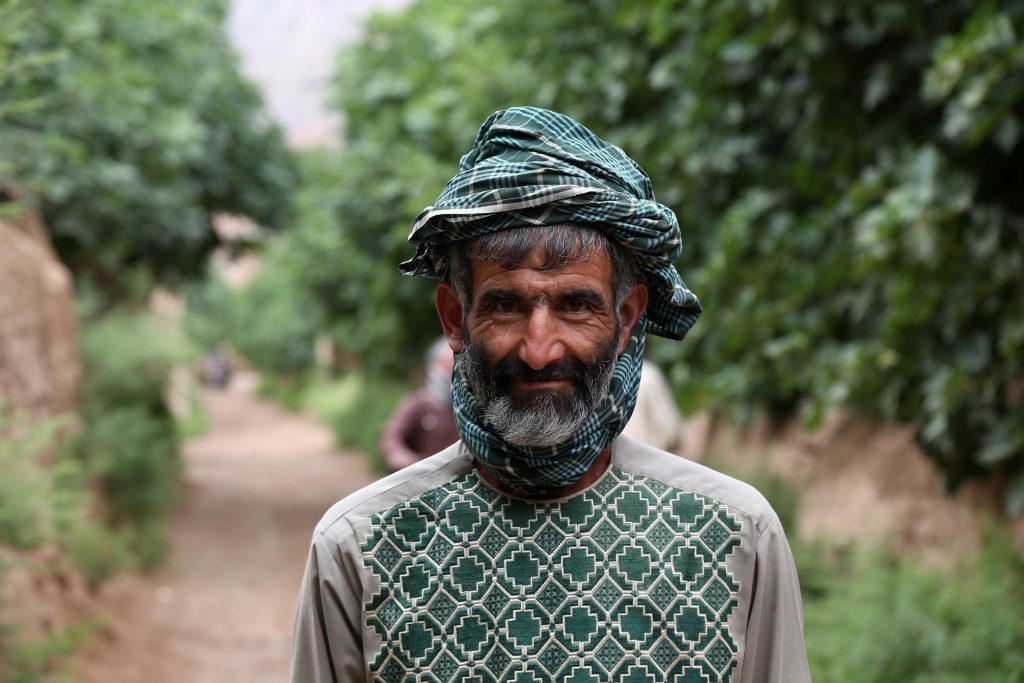traceability
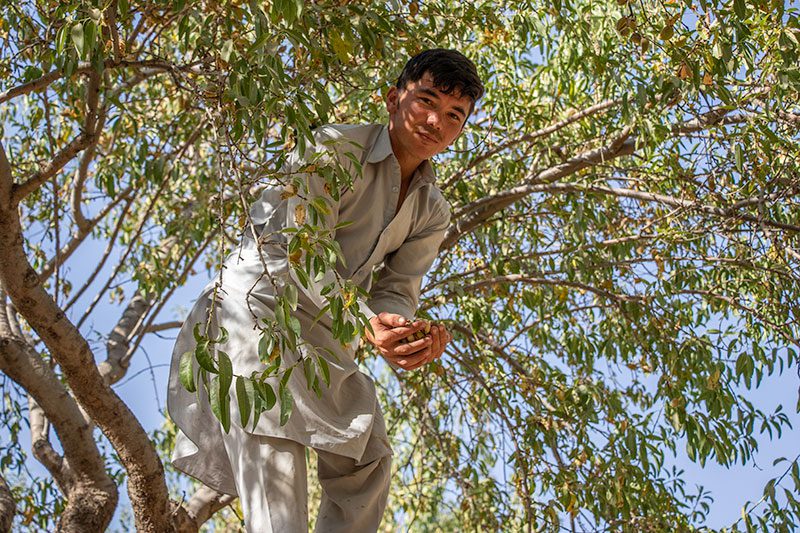
Why it’s important to us
Traceability for us, in its simplest form, is about integrity. Whether it’s our dry-roasted and salted almonds or our sun-dried figs, we want you to know as much as possible about the product starting from where (and how) they were grown right up until the moment they make it into your pantry. We believe that transparency should be the norm in every industry: it helps keep brands accountable and it ensures that customers are able to make informed decisions.
The Land
In the 1970s, Afghanistan was a global leader in the production of high quality dried fruits and nuts. Unfortunately, due to conflict and the unstable economic climate that followed, the country’s farms were unable to invest in the modern technology needed to keep up with global demand.
Ziba was founded in 2015 and bases all production inside Afghanistan within a purpose-built HACCP-certified facility in Kabul, creating jobs and a reliable source of income for family farms across the country. Ziba works to restore Afghanistan to its position as a world-renowned producer of dried fruit and nuts.
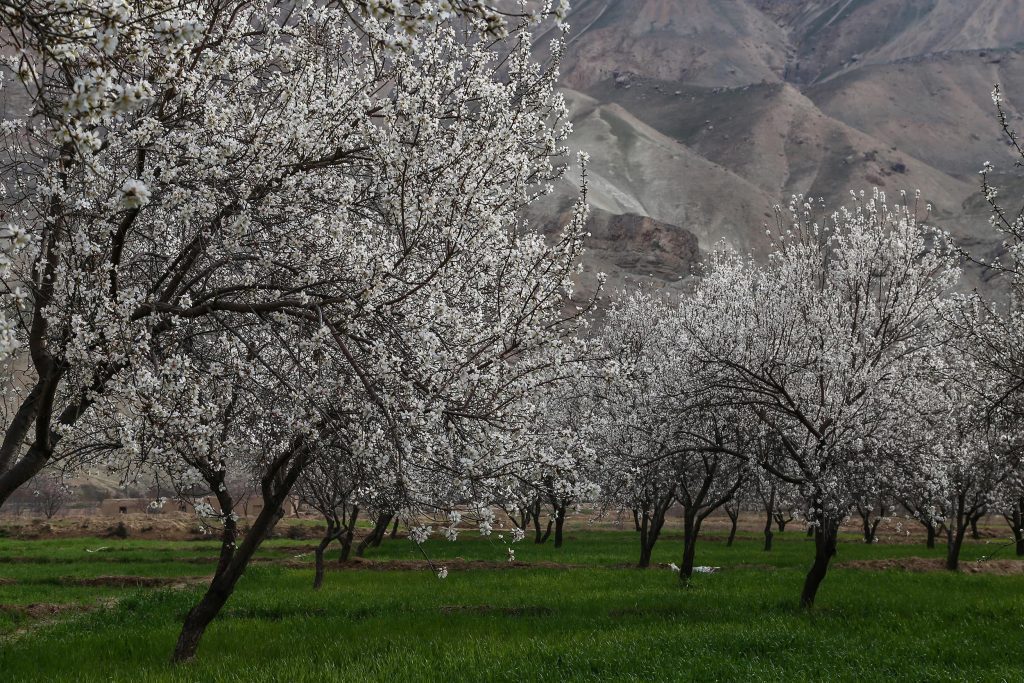


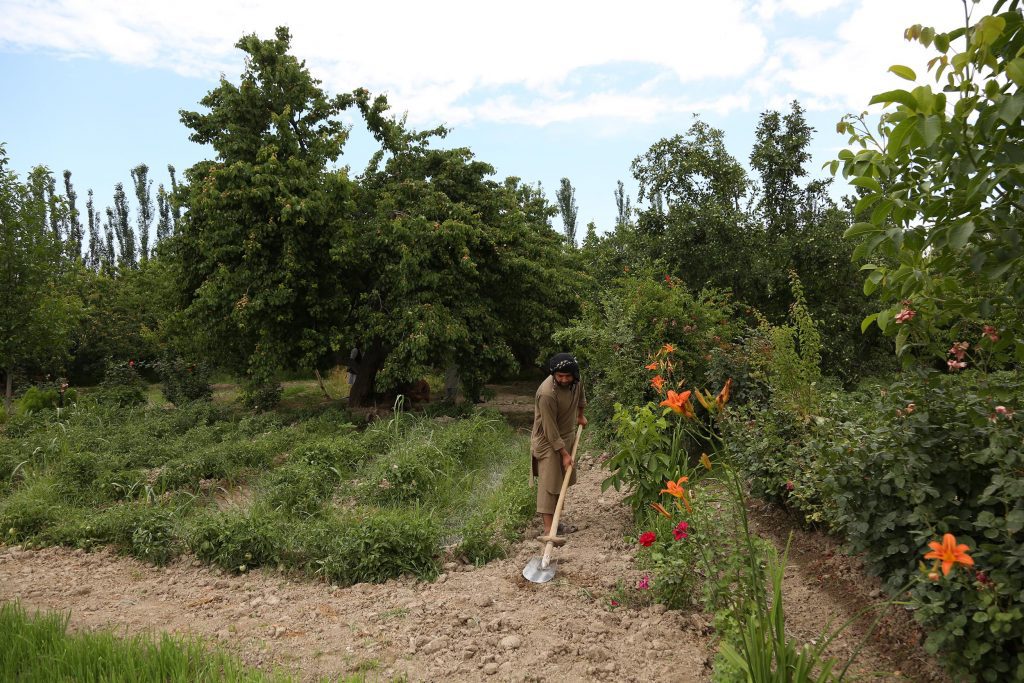


Geography
Afghanistan is a landlocked country of varying landscapes: mostly low plateaus with deserts, rangelands and a fertile plain in the southeast. The striking Hindu Kush mountains run northeast to southwest across the country, dividing the landscape into three major regions: the Central Highlands, the Southwest Plateau, and the Northern Plains, where Afghanistan’s most fertile soil is located.
The country’s climate is arid to semiarid, with cold winters and hot summers. While roughly 12% of Afghanistan’s total land is arable, only half of that is presently cultivated, and only about half of that again is irrigated. Limited rainfall and basic irrigation infrastructure makes irrigation a challenge for many farmers.
A range of crops are grown depending on the region: some provinces grow cotton or wheat, others grow fruits and nuts. These fruits and nuts—including almonds, pistachios, figs, and mulberries—are some of Afghanistan’s most important exports, and account for a significant portion of the country’s GDP.
Heirloom & Wild Grown
Most Afghans rely on agriculture to feed their families and to earn a livelihood, but large-scale commercial farms are nonexistent. The size and yield of Afghan farms is such that the products grown on them pass down through generations as true heirlooms. The excellent quality for which Afghan dried fruit and nuts have been known for centuries remains protected and nurtured within the diverse network of family farms from which Ziba buys its products. The use of modern machinery and pesticides is largely unheard of, with most small farmers using traditional farming methods.
Pistachios and mulberries are some of the products which grow wild across Afghanistan’s countryside – products which are foraged and gathered at harvest time by local communities and individuals who are given quotas each season. We work closely with the farmer collectives who gather these harvests from individuals.
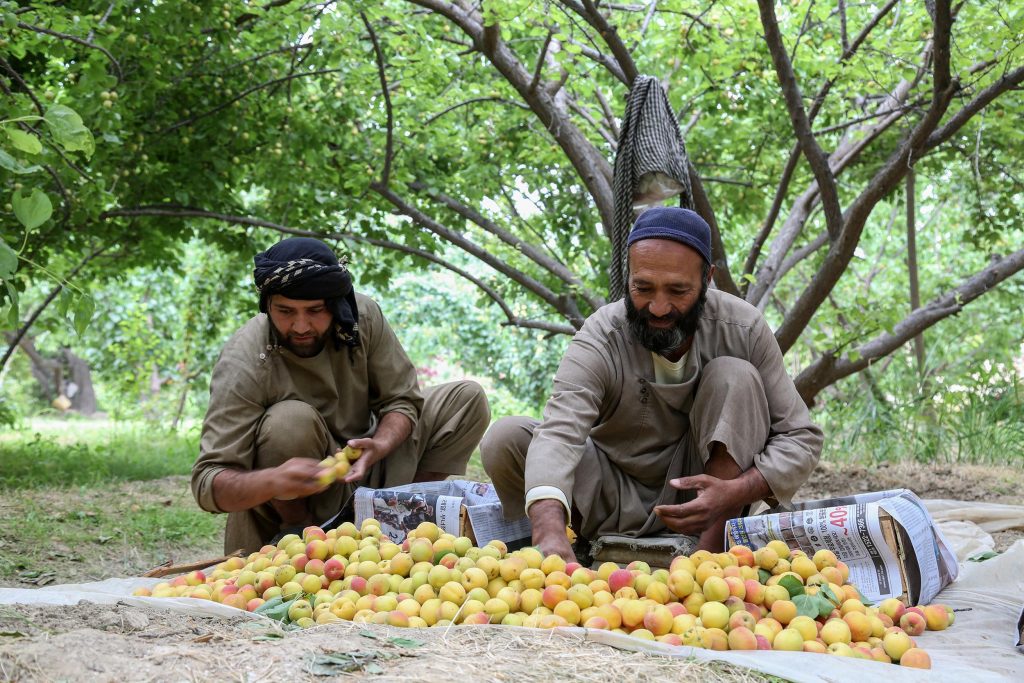


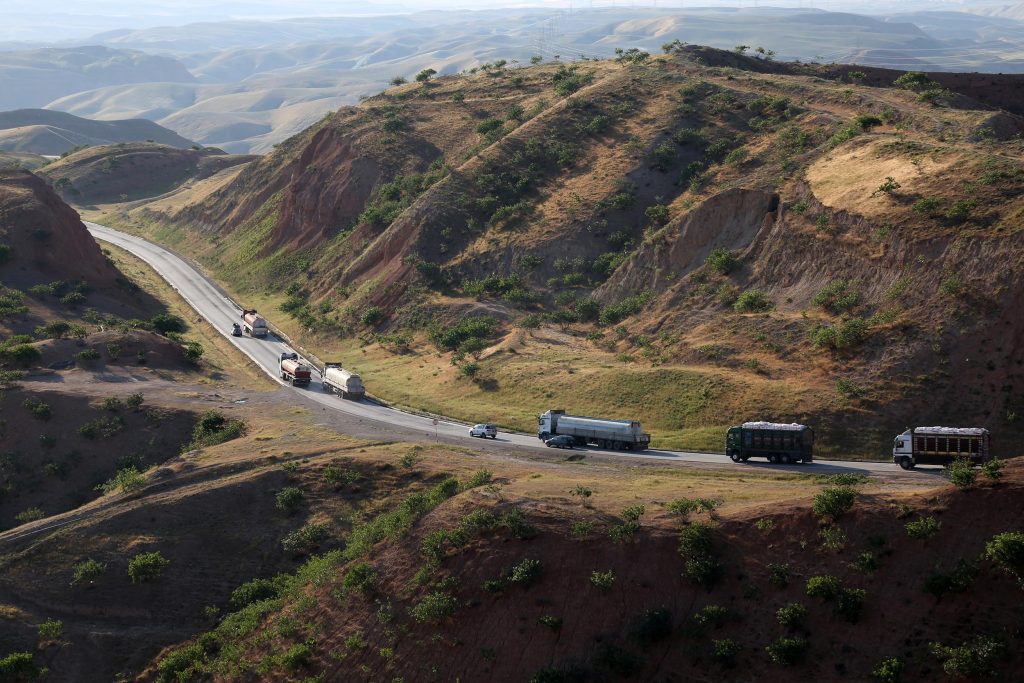


THE TRADE
One of the many challenges facing Afghan fruit and nut farmers is an economic imbalance between the Afghan farmers who rely on sales to feed their families throughout the year and the traditional traders who more often than not, do not deliver on their promises of higher returns after the harvest season.
Traders often take harvested products from farmers on consignment. Some traders pay the farmers less than they promise, citing poor market conditions or problems with product quality. Unscrupulous traders often mix new or superior-quality product with old, inferior stock, attempting to maximize their personal profit at all costs. This damages the reputation of Afghan agricultural products and the farmers who work so hard to produce them. In this environment, the farmers assume all of the risk, but they have little choice and no recourse because they are reliant on these traders to feed their families.
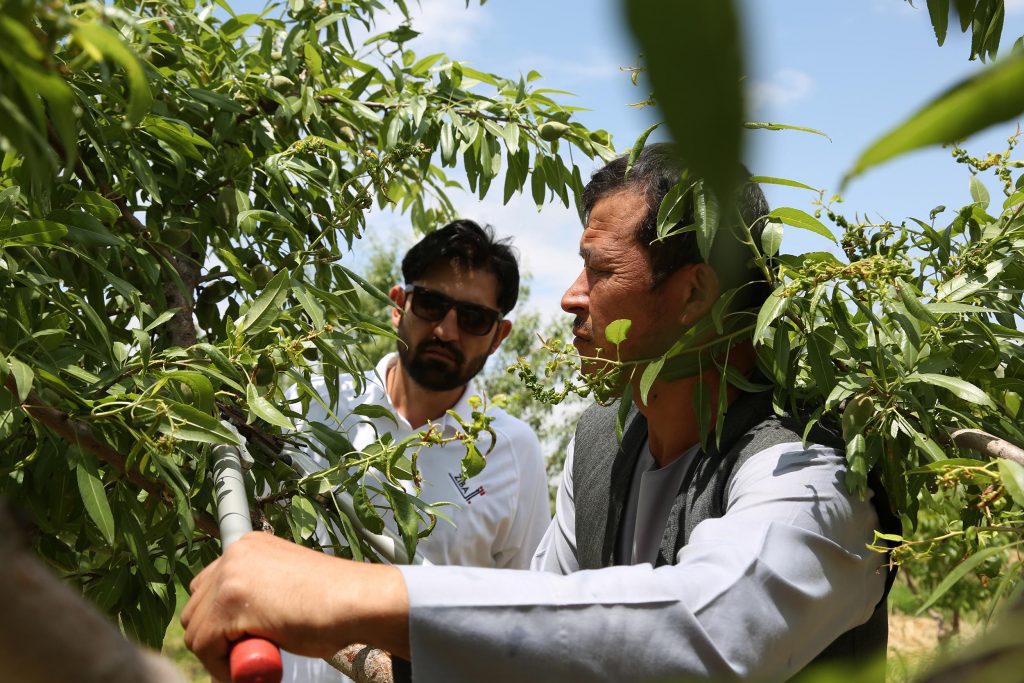


Ziba works differently. Ziba always pays for our goods at the time of purchase. As soon as a farmer’s available harvest passes our rigorous quality control and inspection process, the farmer gets paid, in cash. We also track our purchases with a modern batching and tracing system, ensuring that we only bring top-quality products to market. Ziba’s way of doing business protects the quality of our products, bolsters the reputation of Afghan dried fruit and nuts, and allows us to sustain relationships with farmers and cooperatives across the country, providing them with a reliable source of income, often for the first time.
Traceability Program
80% of the Afghan population is reliant on some form of agriculture—whether directly or indirectly—for their livelihood. We have always felt a responsibility to contribute towards the betterment of Afghan agriculture in order to create opportunities and normalize a higher standard of work practices in the industry.
Our pilot program is just the start of our traceability program, which is designed to benefit the end consumer as well as the farmers we work with.
Our traceability program focuses on the following areas:
- Testing
- Education
- Follow-up & Mentoring
This benefits the farmers because it helps them improve the quality of the fruits they grow as well as offer proof of soil and water quality free of any contaminants. This, in turn, allows the farmers to charge more for their products, thereby increasing their income.
Phase 1
We have identified a group of twenty Shakhurbai almond growers who are part of the Samangan Almond Association— a formalized collective of smallhold almond farmers. Their plot sizes range from orchards of less than 100 trees up to 1,000 (which translates in land-area to between 3 and 20 jerib or 1.5 to 10 acres).
We are starting with almonds for our traceability program mainly because the Samangan region has remained relatively safe throughout recent instability in the country and our team members can easily reach the growing regions throughout the year. Figs, for example are grown in Kandahar, a region that is difficult to access due to the Taliban’s near complete control of the area, making it challenging for our team to visit with the frequency required to test this program.
Additionally, Samangan is known for and produces the best almonds in Afghanistan, and the Samangan Almond Association is available on the ground to be our partners in this program and to help liaise with each farmer.
Phase 2
We have identified a second group of twenty (20) almond farmers. This group is made up of small hold farms with Satarbai orchards (because these farmers grow other things too!) from the district of Khulm who are not formally part of any association. Their plot sizes are similar to the first test group and range from orchards of 100-1,000 trees (which translates in land-area to between 3 and 20 jerib or 1.5-10 acres). The idea of of this second group not being formalized (as opposed to being part of a farmers’ association) is so we can determine whether these is any difference or benefit to one type of group over the other.
Phase 3
The final phase of our traceability program involves taking all of the findings and feedback from the first two phases and rolling out the program to all of the farms we work with. We estimate 50% completion by 2023 and 100% completion of our program by 2025.
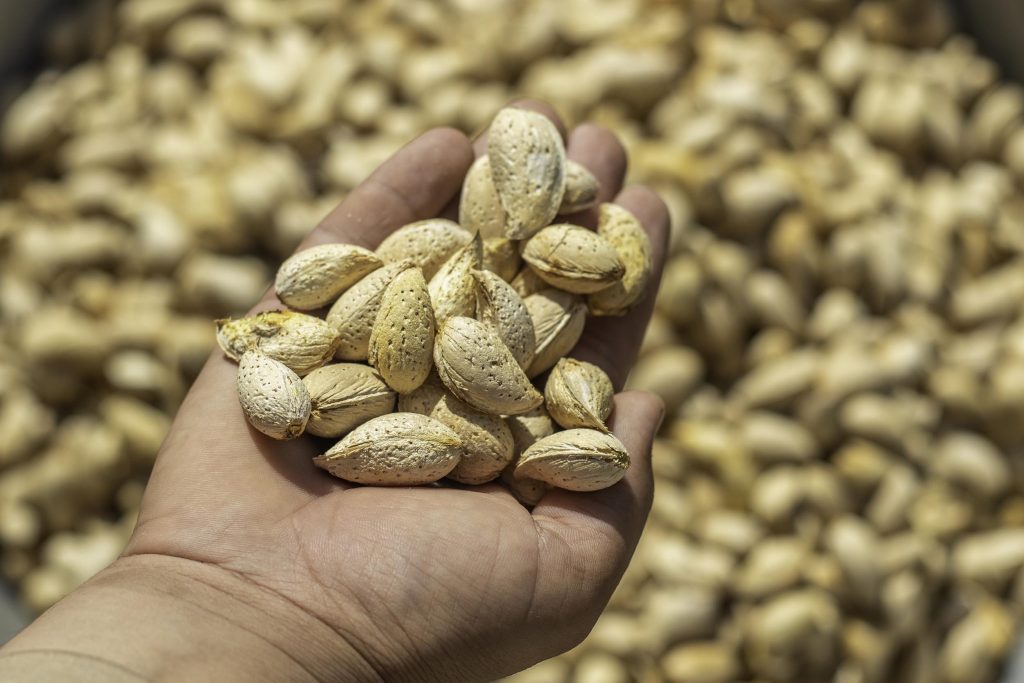


The Factory & Beyond
Ziba’s headquarters is a purpose-built factory in Kabul, the capital of Afghanistan. We built the factory in 2015 for the express purpose of exporting beautiful Afghan dried fruit and nuts to international markets in a modern, professional way for the first time. The facility has been HACCP-certified since we began operations in 2016, and it is staffed and managed by our dedicated team of Afghans, 85% of whom are female. All of our products are hand sorted, manually inspected for quality, and packed for shelf-ready shipment inside the facility. Basing our operation inside Afghanistan rather than in less-challenging places outside the country creates jobs, bolsters the local economy and allows Afghans to get more value from the products grown in their country.
Female-led workforce
Since its inception, Ziba has maintained a constant focus on supporting and improving the role of women in Afghan society. With chronically high rates of unemployment, Afghan women are too often marginalized across all economic sectors. Ziba’s workforce in both management and staff positions is 85% female.
Year-round employment & Training
We provide our Afghan staff with year-round employment despite the cyclical nature of the agricultural industry. Further, we provide educational opportunities for our staff, including weekly English lessons and ongoing industry-related training.
